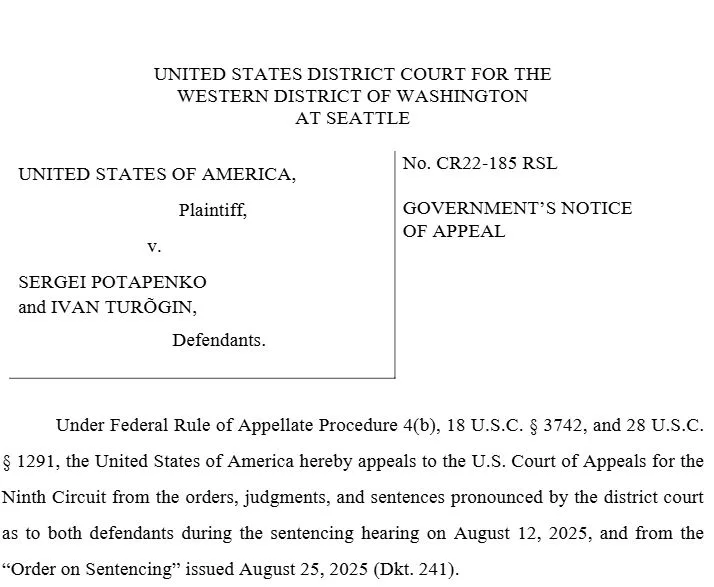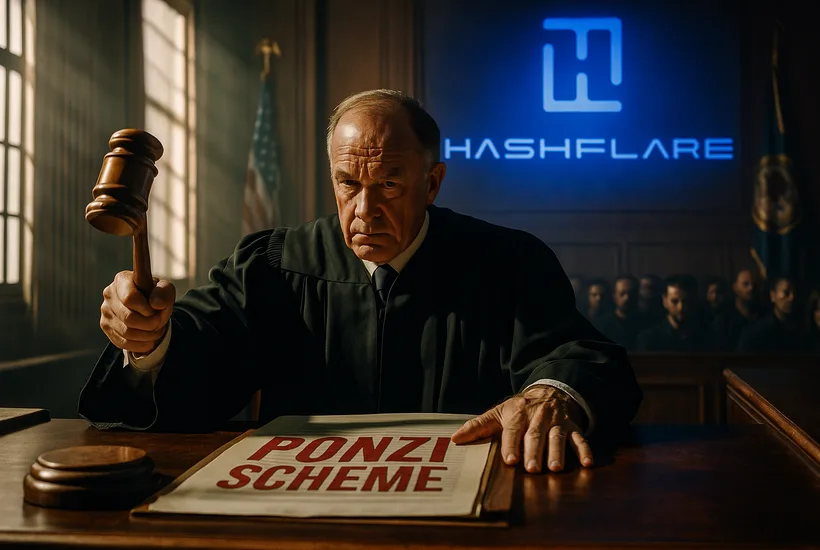- U.S. prosecutors have formally appealed the sentence of ‘time served’ granted to HashFlare co-founders.
- District Judge Robert Lasnik, in the Western District of Washington, delivered the sentence on August 12, 2025.
- The Department of Justice had sought 10 years in prison, arguing the Ponzi scheme inflicted serious harm to victims.
U.S. prosecutors have formally appealed the time-served sentences handed to HashFlare co-founders Sergei Potapenko and Ivan Turõgin. They have challenged the sentence by filing an appeal in the Seattle Federal Court. Making a case in the Ninth Circuit Court, prosecutors feel that the penalties were far too lenient given the severity of the crime.
On 12 August 2025, Judge Robert Lasnik of the U.S. District Court in Washington sentenced the duo to credit for the 16 months they had already spent in custody. Additionally, the Judge asked them to pay a $25,000 fine and 360 hours of community service, which was to be served under supervised release in Estonia.

Newsletter
Get weekly updates on the newest crypto stories, case studies and tips right in your mailbox.
The Department of Justice had sought 10 years in prison, arguing the scheme inflicted serious harm on victims and was the most significant fraud the court had ever handled. Prosecutors stressed that HashFlare sold over $577 million in alleged mining contracts between 2015 and 2019, using fraudulent dashboards to exaggerate capacity and returns. They paid early investors with the money collected from new customers, in a typical Ponzi scheme.
Largest fraud case in district history
The defense countered that most victims ultimately received more cryptocurrency than they initially invested. They showed that ~$2.3 billion was withdrawn by roughly 390,000 customers, compared to $487 million invested. They also highlighted that over $400 million in assets had been forfeited under the plea deal, earmarked to compensate victims.
However, prosecutors maintain that the figures backing the “no harm” narrative were fabricated and insufficient to mitigate the gravity of the offense.
If the appeal succeeds, Potapenko and Turõgin could face a much harsher sentence. The co-founders, who previously received self-deportation notices, are likely to remain free on bail in Estonia. They will have to wait for further proceedings and the court’s ruling on the appeal to take any actionable steps.













